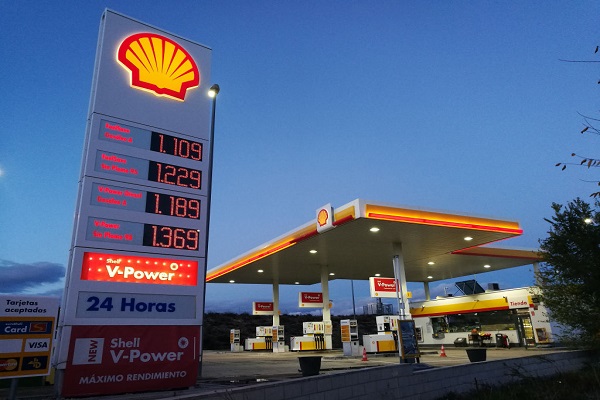Shell and BP shares: what the City really thinks
With oil majors still in recovery mode, these experts just updated their expectations.
21st April 2021 15:22
by Graeme Evans from interactive investor
With oil majors still in recovery mode, these experts just updated their expectations.

It's been almost a year since pandemic-hit Royal Dutch Shell (LSE:RDSB) dealt a severe blow to income investors and pension funds by cutting its dividend for the first time since the war.
Last April's 66% reduction took the first-quarter payment down to 16 cents per share, although by late October the oil giant's prodigious ability to generate cash had already resulted in the resumption of its progressive dividend policy.
Now, a City bank has made Royal Dutch Shell its top pick in the European oil sector by modelling a 2022 restart to share buybacks that implies a total shareholder yield of 10.7%.
- Stocks that made you a fortune in the 2020-21 tax year
- ISA early bird investors almost twice as likely to be ISA millionaires
- Open an ISA with interactive investor. Simply click here to find out how.
Deutsche Bank's upbeat assessment also forecasts 37% upside for Shell's shares, whereas its research analyst James Hubbard sees higher risk and much less momentum at BP (LSE:BP.).
- Invest with ii: Trade US Stocks & Shares | Top UK Shares | Open a Trading Account
He said in a note published today: “When Shell cut its dividend in 2020 it was a shock for many, but the silver lining is that it saves Shell about $10 billion per annum.
“This contributes to our forecast for its net debt to swiftly fall to under management's target of $65 billion before the end of 2021 and sets up 2022 to potentially see the restart of a material share buyback.”
Royal Dutch Shell B shares, which for tax reasons are more commonly traded in London than the A version, were today 6.2p higher at 1,297p. This compares with a pandemic low of 866p in late October and more than 1,500p seen last month.
More positives for Shell
Hubbard believes there are other positives beyond the buyback catalyst, including the scale of the energy giant's LNG business (liquified Natural Gas) which ranks second and first respectively in terms of liquefaction capacity and in volumes sold.
Natural gas emits between 45% and 55% fewer greenhouse gas emissions and less than one-tenth of the air pollutants than coal when used to generate electricity.
Using Deutsche Bank's oil carbon scorecard, Shell's decarbonisation strategy places the company fourth out of eight European-listed names and two spots ahead of BP.
Shell's A shares currently trade on a forecast multiple of 8.5 times 2021 earnings, which Deutsche notes is a 35% discount versus the EU oil sector's five-year average. The dividend yield of 3.6% is less impressive versus a sector average of 5.4%, but this jumps to the top of the pile on the assumption that buybacks will restart in earnest next year.
The bank's new 1,937p target for Shell A is based on Brent oil averaging $65.4 a barrel over the next two years and implies a price/earnings multiple of 11.5 times, which is still an 11% discount to the sector's five-year average.
- ii view: Shell confirms big hit from Texas winter storms
- Your vote counts: get heard at Lloyds Bank, NatWest and BP AGMs
- ITM Power: a star of the green investor revolution
On BP, Deutsche has a price target of 313p and ‘hold’ recommendation. The bank said this partly reflected risks attached to ambitious decarbonisation plans outlined in September.
Today's note warns: “Aggressive renewables investments come with risks of potential value destruction via paying what may turn out to be 'full' prices for potentially relatively late entry to some projects.” BP shares were today 1.85p higher at 293.6p.
These articles are provided for information purposes only. Occasionally, an opinion about whether to buy or sell a specific investment may be provided by third parties. The content is not intended to be a personal recommendation to buy or sell any financial instrument or product, or to adopt any investment strategy as it is not provided based on an assessment of your investing knowledge and experience, your financial situation or your investment objectives. The value of your investments, and the income derived from them, may go down as well as up. You may not get back all the money that you invest. The investments referred to in this article may not be suitable for all investors, and if in doubt, an investor should seek advice from a qualified investment adviser.
Full performance can be found on the company or index summary page on the interactive investor website. Simply click on the company's or index name highlighted in the article.